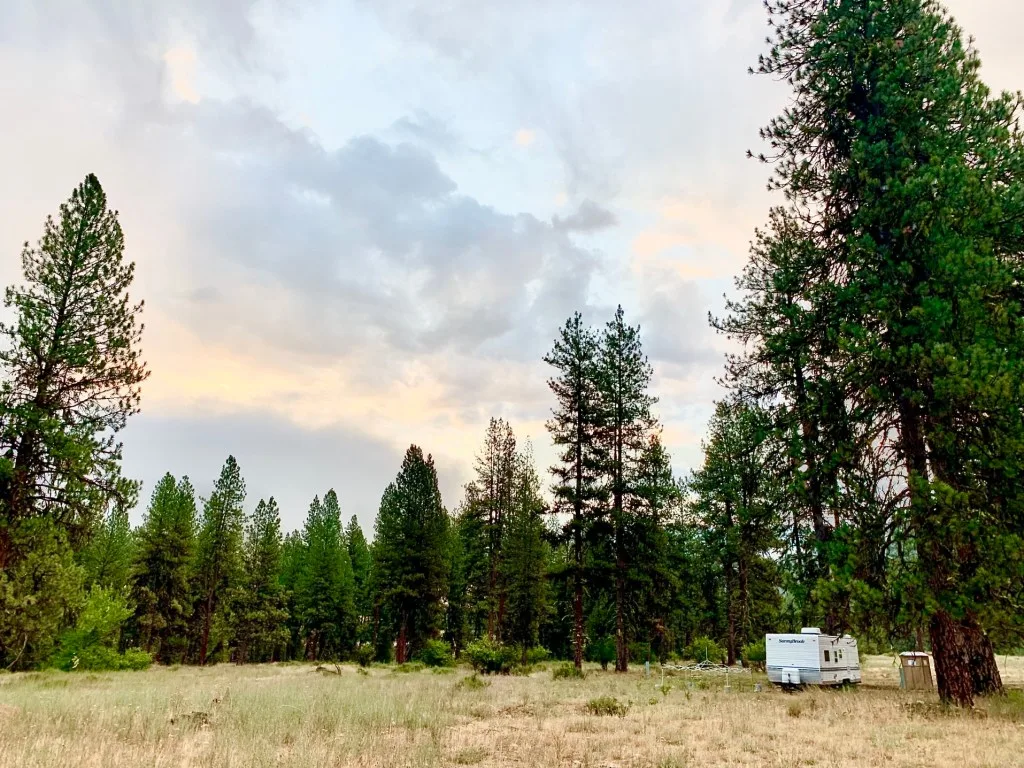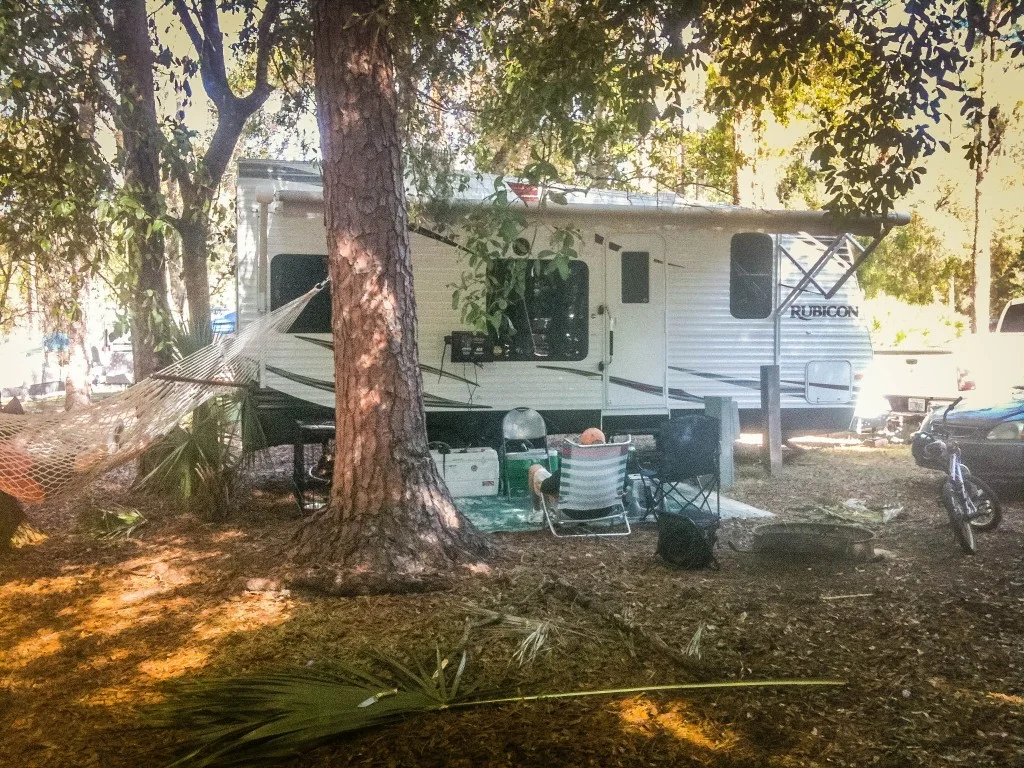What Happens If You Overstay the Camping Limit on Public Land?
While camping on public lands can be very budget-friendly, it does come with some limits.
Restrictions on how long you can stay are just one of many you’ll find when camping on public lands, but what happens if you overstay your welcome?
Today, we’ll take a closer look at this restriction and why we think it’s important that you do your very best to avoid breaking it.
Let’s get started!
How Long Can You Camp on Public Lands?
Typical stay limits are 14 days in a 28-day period. However, these restrictions vary from one location to the next. Some popular locations near national parks may even have seasonal stay limits that change depending on the season.
For example, Bridger-Teton National Forest limits camping to five days during peak season. So save yourself the trouble and make sure you familiarize yourself with the stay limits for every campsite in your path, especially if you’re planning to stay for an extended trip.
Why Is There a Limit on Free Camping?
Limiting the length of stays on free camping helps avoid people setting up permanent campsites. When this occurs, the land can get destroyed, and the area can quickly become uninviting for others looking to camp and enjoy nature.
Leaving RVs and other items parked on land kills plants and other vegetation. This destroys the natural habitat agencies are hoping to preserve. However, this isn’t the only reason for stay limits.
Stay limits also give others the chance to enjoy some of the best camping spots. This is especially true when it comes to sites in popular locations. In recent years, there has been a massive boom in RVing, which means many more RV owners are looking for spots.
While we would love to stay in some places, we understand why many agencies put these restrictions in place. Whether or not agencies are actively enforcing these rules or holding campers accountable varies from one location to the next.
However, if agencies are actively monitoring camping, there can be severe consequences for overstaying your welcome.
Pro Tip: If you’re going free camping make sure not to make any of these mistakes on our list of The Don’ts of Free Camping.

What Happens If You Overstay the Camping Limit on Public Land?
It can be easy to think that no one is watching just because you didn’t check in with a ranger or haven’t seen any activity. However, that’s not always the case.
If they catch you overstaying the camping limit, you could find yourself in quite a predicament.
You May Get a Knock and Reminder
When you’re camping on public lands, don’t be surprised if you get a knock on the door or a reminder as you near the camping limit.
This isn’t always the case, but if rangers or volunteers monitor the area, they’d rather provide a gentle reminder than issue a ticket.
Don’t be alarmed if you get a knock on the door or a ranger stops by your site.
You May Get a Warning
Rangers and volunteers are relatively patient when it comes to enforcing stay limits. They understand that there are various reasons why you may need to stay a day or two, but they’re likely going to issue you a warning.
However, it’s essential to know that this might not always be the case.
Similar to when a cop pulls you over for speeding, the officer may or may not issue you a warning even though you rightfully deserve a ticket. If you received the knock and reminder already, don’t anticipate getting a warning.
This is especially true if the ranger that reminded you is the same ranger deciding whether or not you deserve a warning or a ticket.

You May Get a Ticket
One of the risks of overstaying your limit is getting a ticket. These restrictions aren’t just suggestions; they’re laws put in place and enforced by actual government officials. In one instance, campers received a knock on the door in the middle of the night and got a $275 ticket instead of a warning.
When you’re camping on federal public lands, you must follow federal laws.
These laws don’t entitle anyone to a warning, and violating these rules is a class B misdemeanor. You can receive penalties up to $5,000, six months in prison, or both.
So a $275 fine may seem like a lot, but you’re likely getting off pretty easy when you consider the maximum penalties.
You Might Get Towed
Some campers will use public lands to store their RV to avoid paying storage fees or because the RV has become inoperable. However, whether your RV is in good working order or not, you’re still subject to the same 14-day stay limits that other campers must follow.
When law enforcement exhausts all other options, they’re likely to consider towing your RV. You’ll have to pay for the towing expenses and then any storage fees the tow company charges you.
These fees can add up fast and negate any savings you were anticipating from enjoying some free camping.
Pro Tip: Don’t run the risk of getting fined or towed by avoiding these 5 Places It’s Illegal to Park Your RV.
Or Nothing Might Happen — But Why Risk It?
The most shocking piece of this whole puzzle is that you may be able to overstay a camping limit, and nothing happens. If law enforcement isn’t actively monitoring the site or enforcing the rules, you could get by without any trouble.
With so much land and so few officers, you could go days or weeks without someone finding you.
However, just because you can do something doesn’t mean you should.

But What If You’re Broken Down?
Local land management agencies are typically very understanding of those who experience unexpected issues with their vehicles. If you alert a local management agency and inform them of what’s happening, they may even offer resources to help get you back on the road.
They’re more likely to show leniency to someone who communicates with them than someone who keeps them in the dark.
Being broken down in an unfamiliar area can be incredibly scary, especially if it’s in a remote area of the country. These agencies will typically have connections to people in the area who may assist you with whatever issue you’re facing. So don’t be afraid to give them a call.
What If You Need to Stay Local But Can’t Afford a Campground?
It’s always best to contact the agency that’s responsible for managing the land. If you need to stay local, you may be able to work out an agreement with the agency, or they may be willing to look the other way for some time. However, this is likely only going to work temporarily.
If you’re planning to set up camp permanently, they’re likely not going to be as accepting of this. You might hit the jackpot if local agencies seek help monitoring the lands and offer to allow you to stay in exchange for volunteering your services.
However, if you don’t hit the jackpot, there are still some other options. Make sure you check the stay limits and the requirements for moving to another site. You may find another site in the area to keep yourself on the right side of the law.
If You Want Public Lands to Stay Open for Free Camping, Don’t Overstay the Limits
It’s important to remember that restrictions are there for the benefit of everyone. Using public lands is a privilege. We’re seeing more and more as agencies close or restrict areas due to violations.
So continue to enjoy free camping on public lands, but please don’t overstay the limits. Doing so punishes others and leads to less free camping for everyone.
Have you ever had to overstay a camping limit?
Discover the Best Free Camping Across the USA
To be honest with you, we hate paying for camping. There are so many free campsites in America (with complete privacy).
You should give it a try!
As a matter of fact, these free campsites are yours. Every time you pay federal taxes, you’re contributing to these lands.
Become a FREE CAMPING INSIDER and join the 100,000 campers who love to score the best site!
We’ll send you the 50 Best Free Campsites in the USA (one per state). Access the list by submitting your email below: